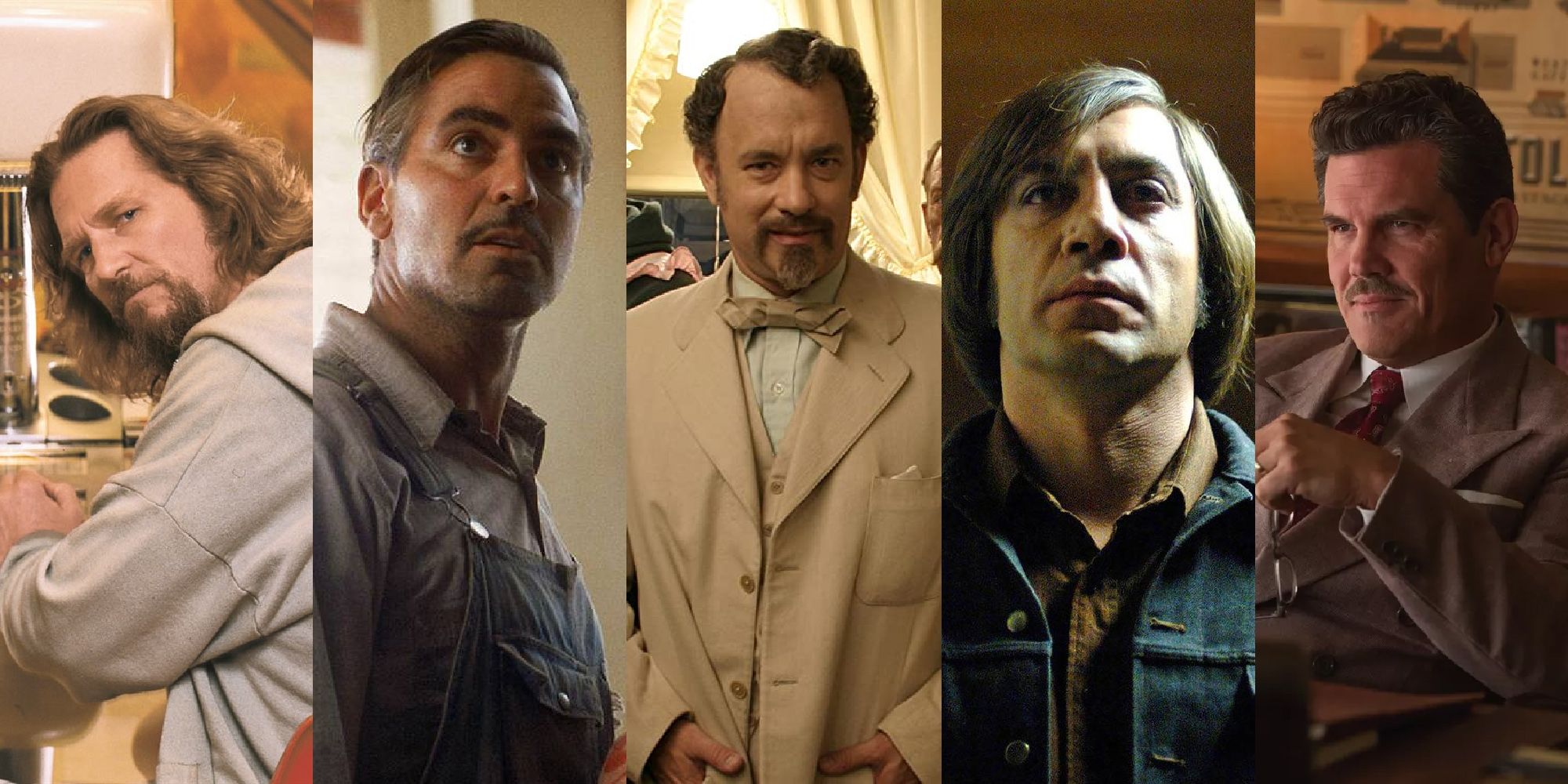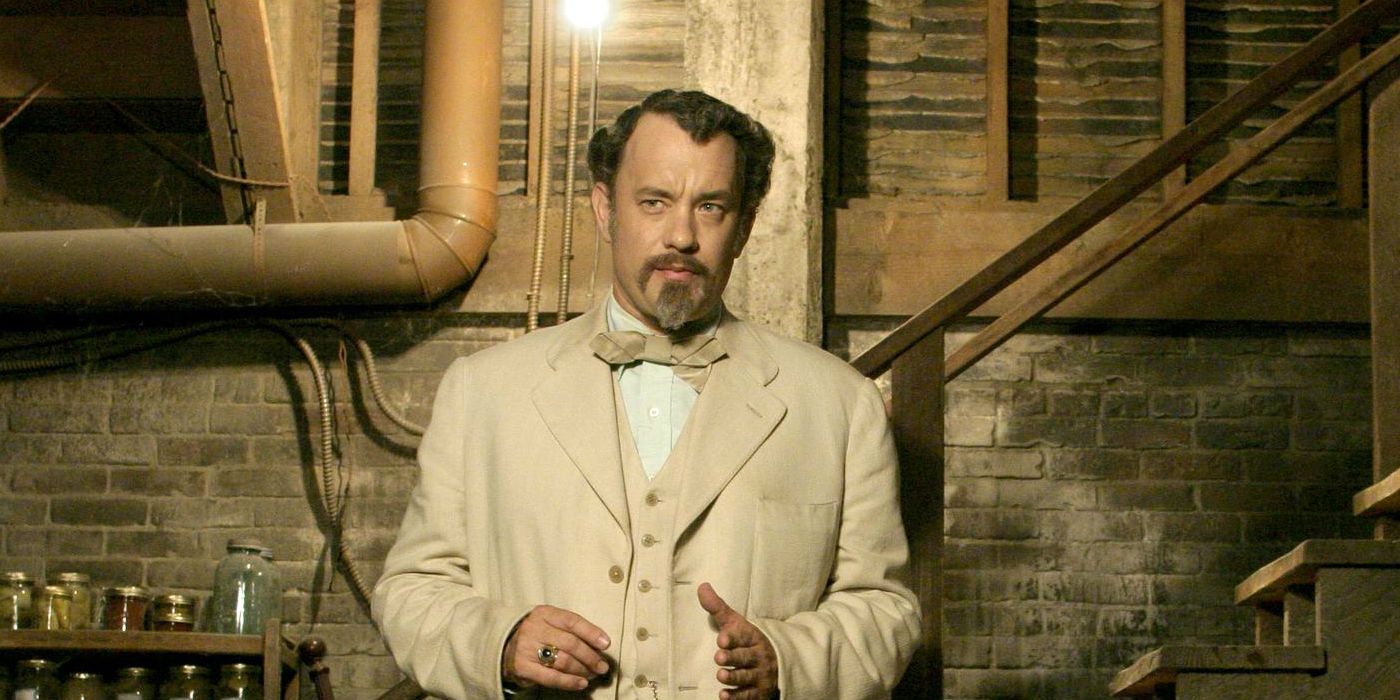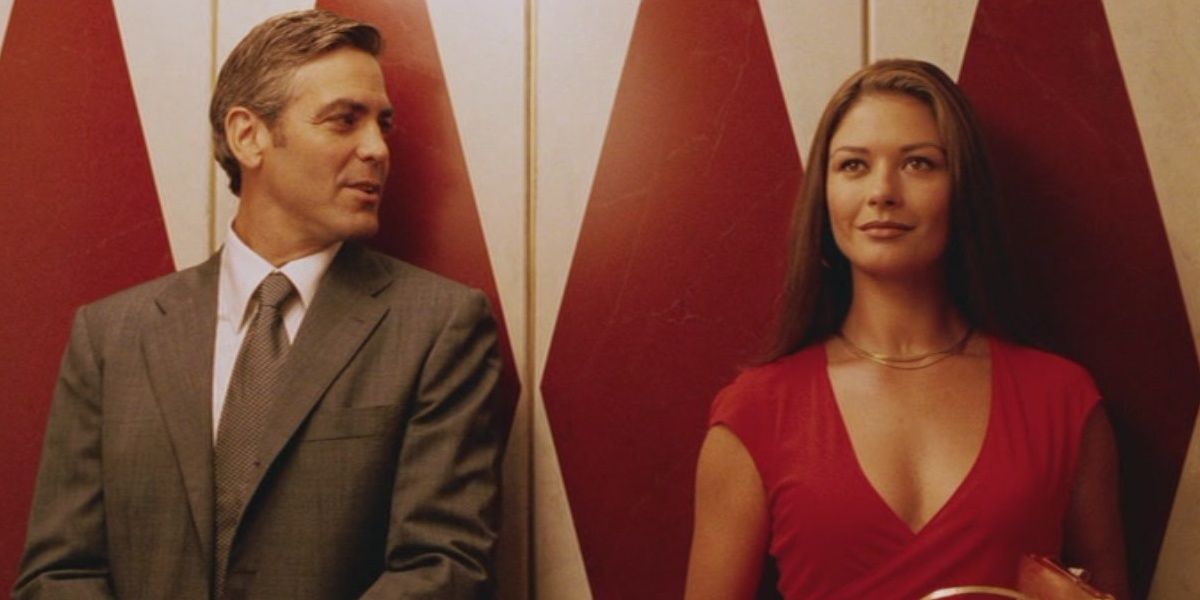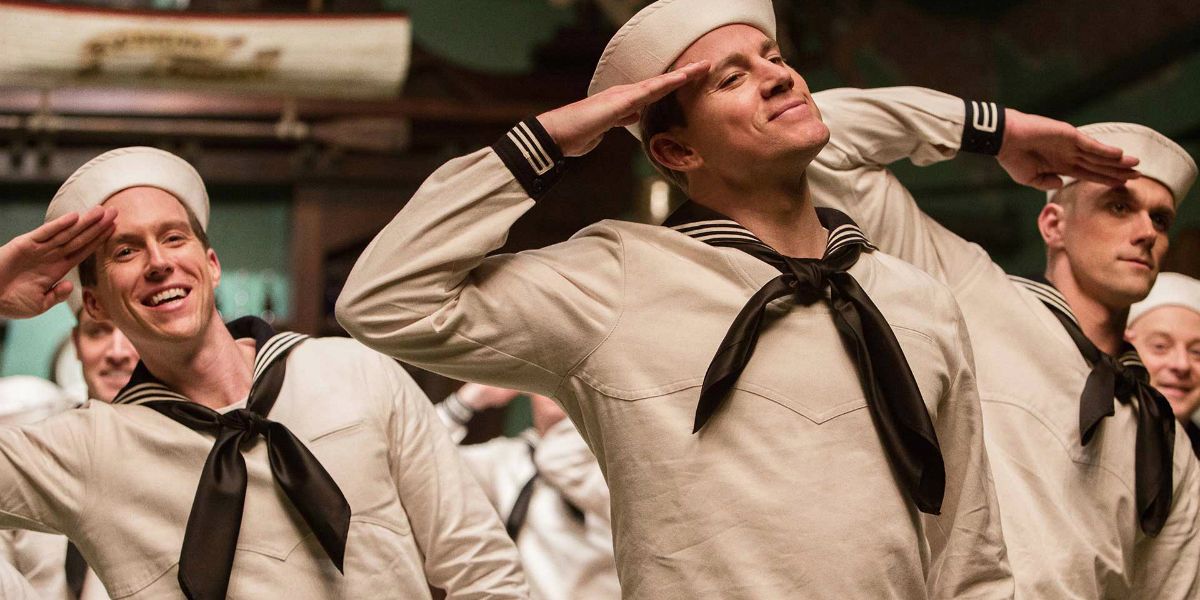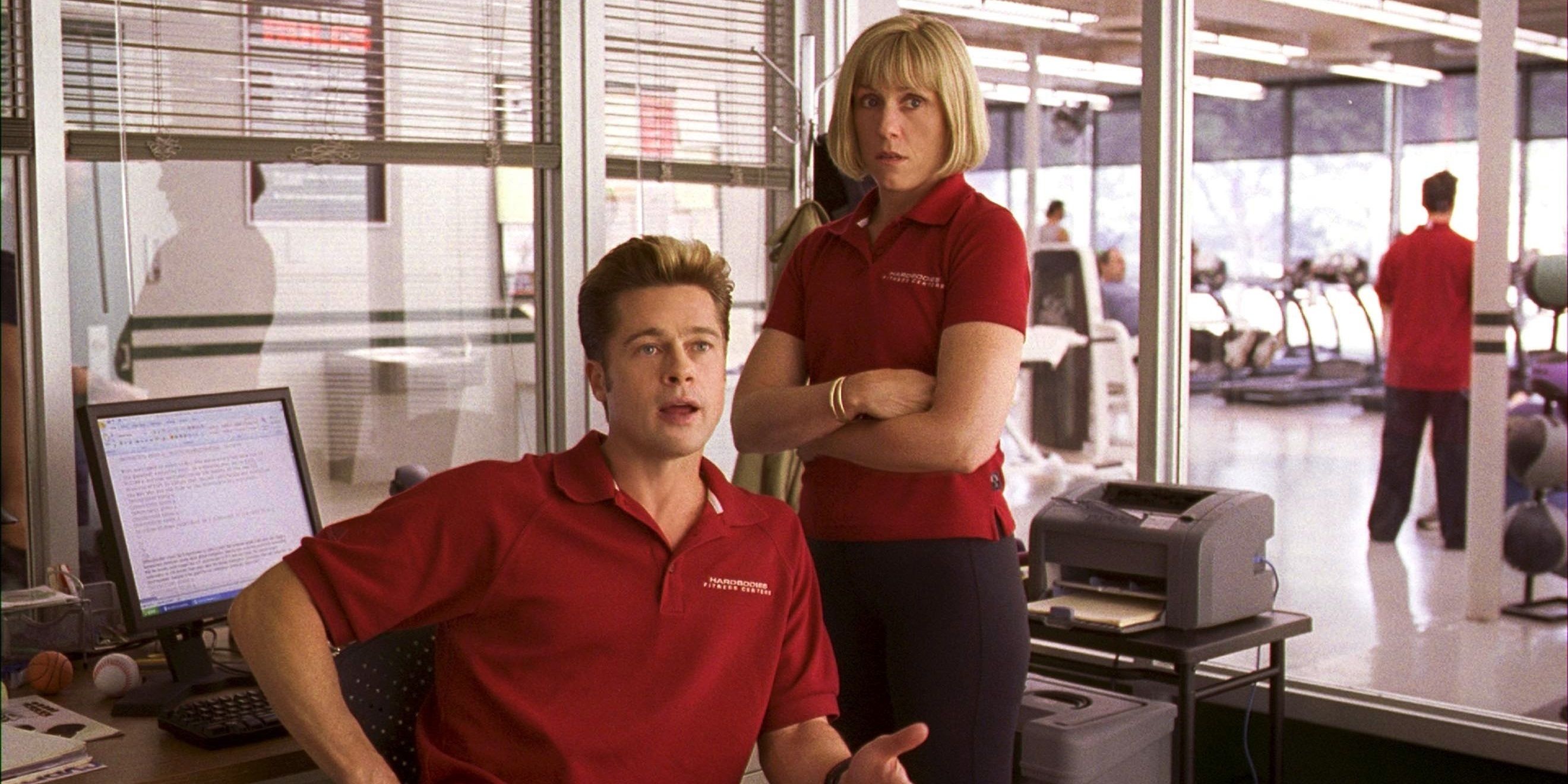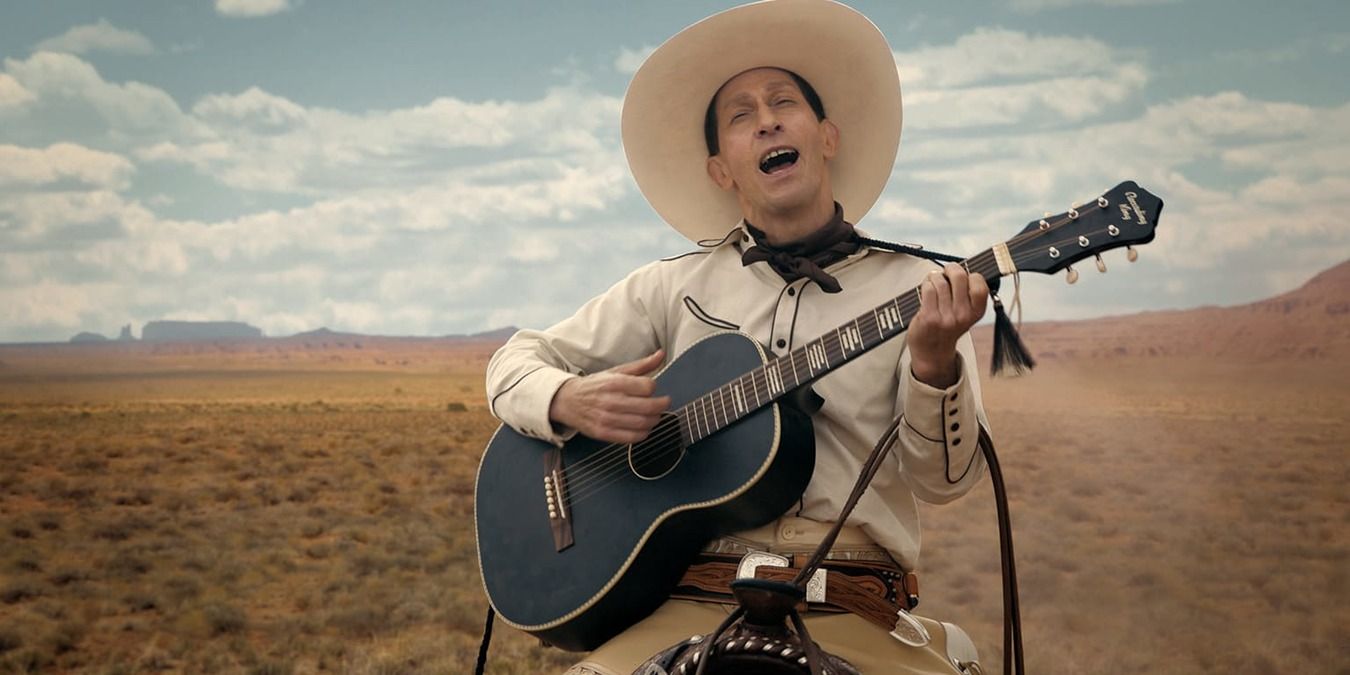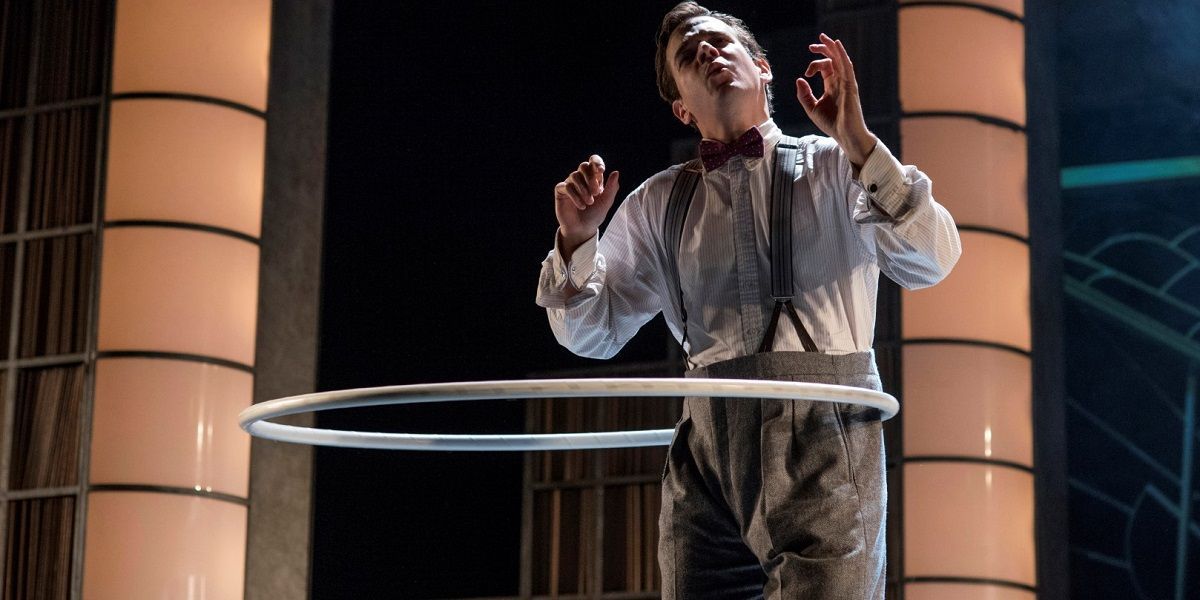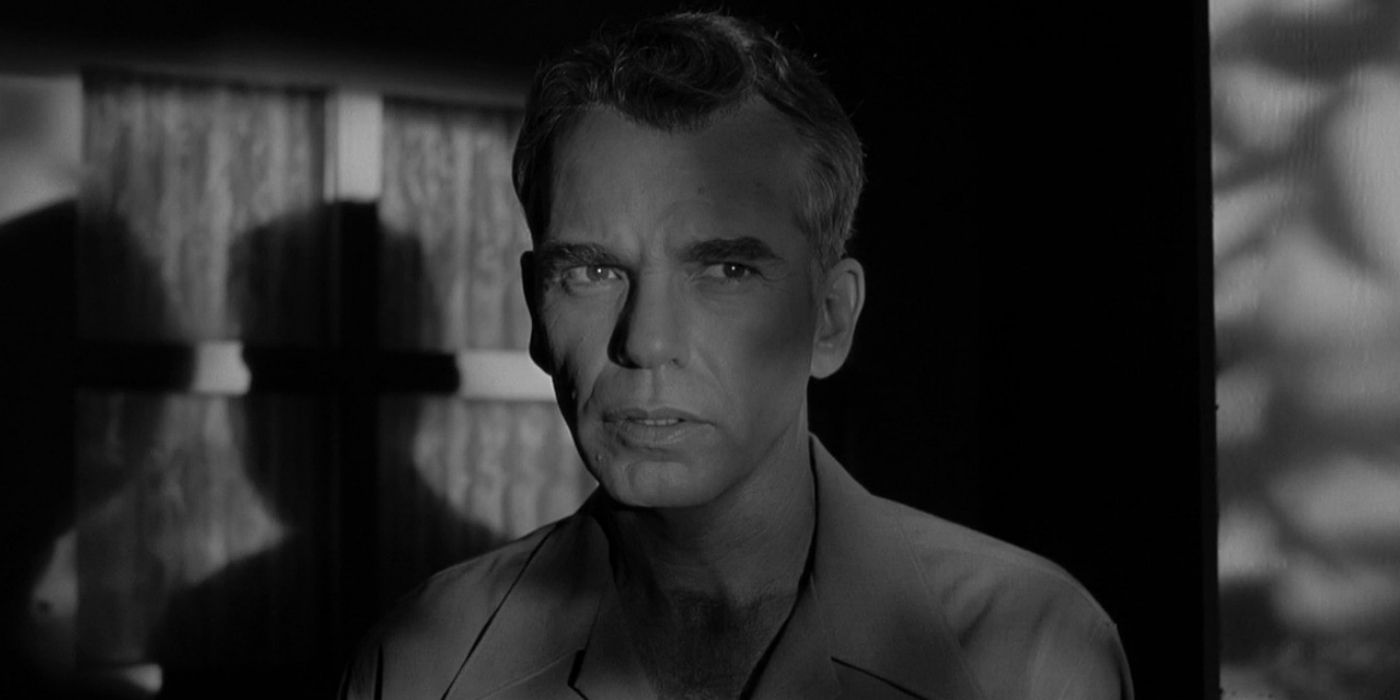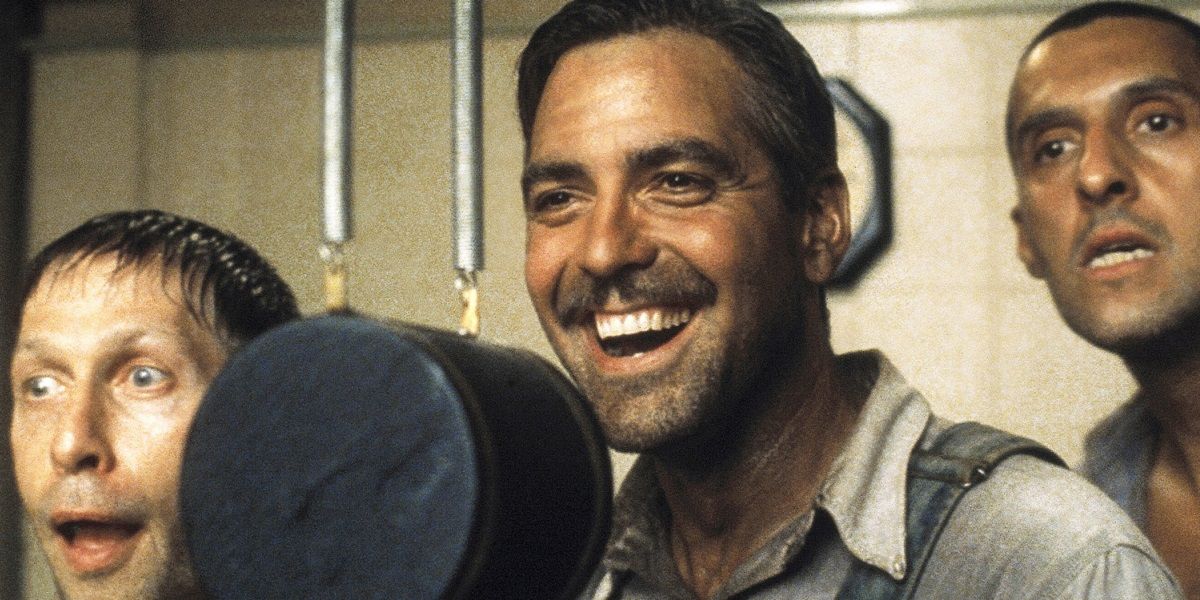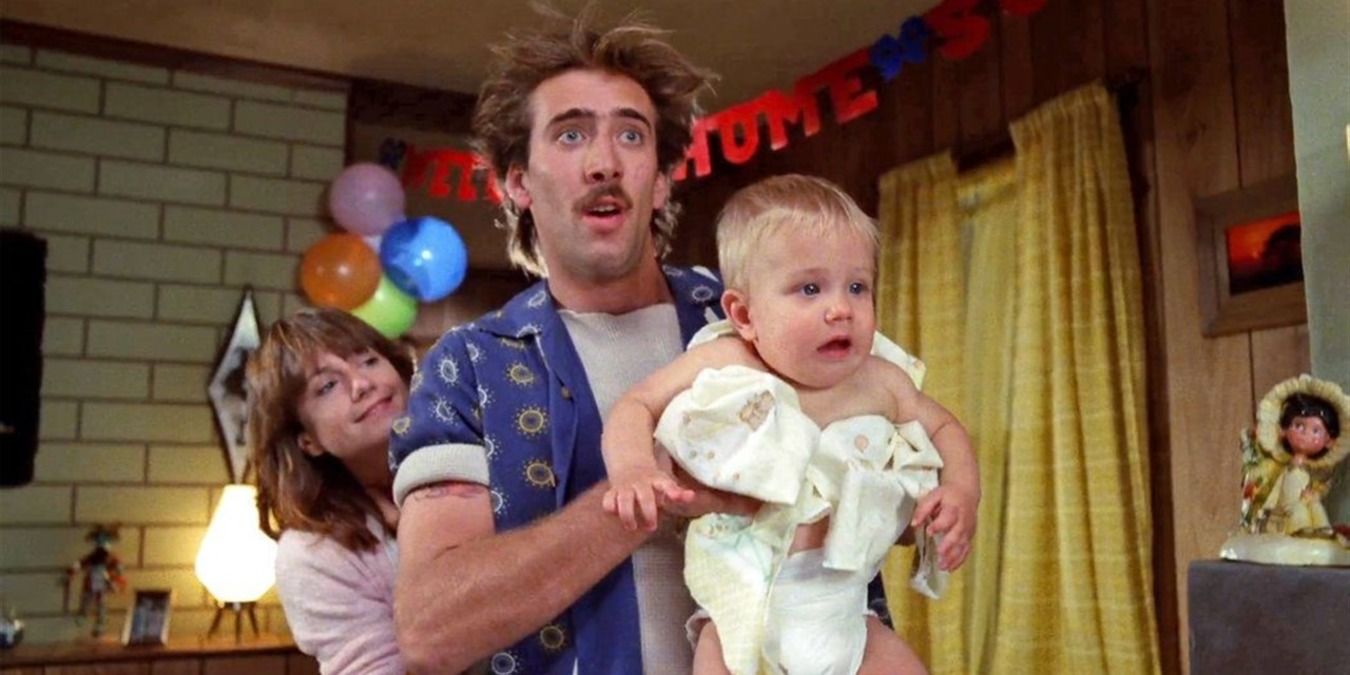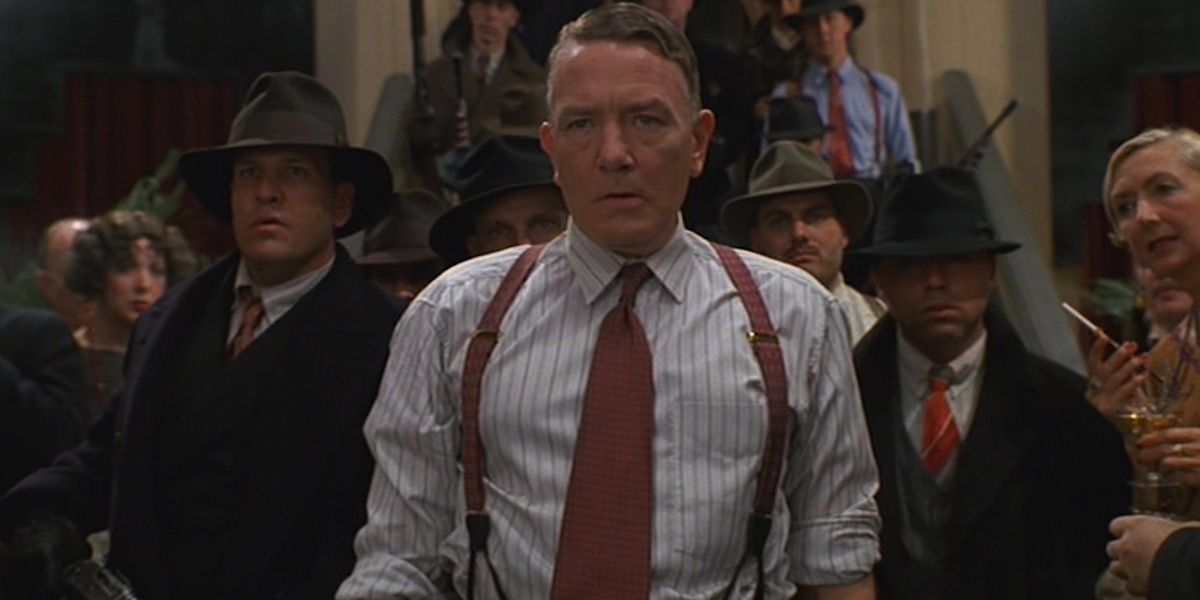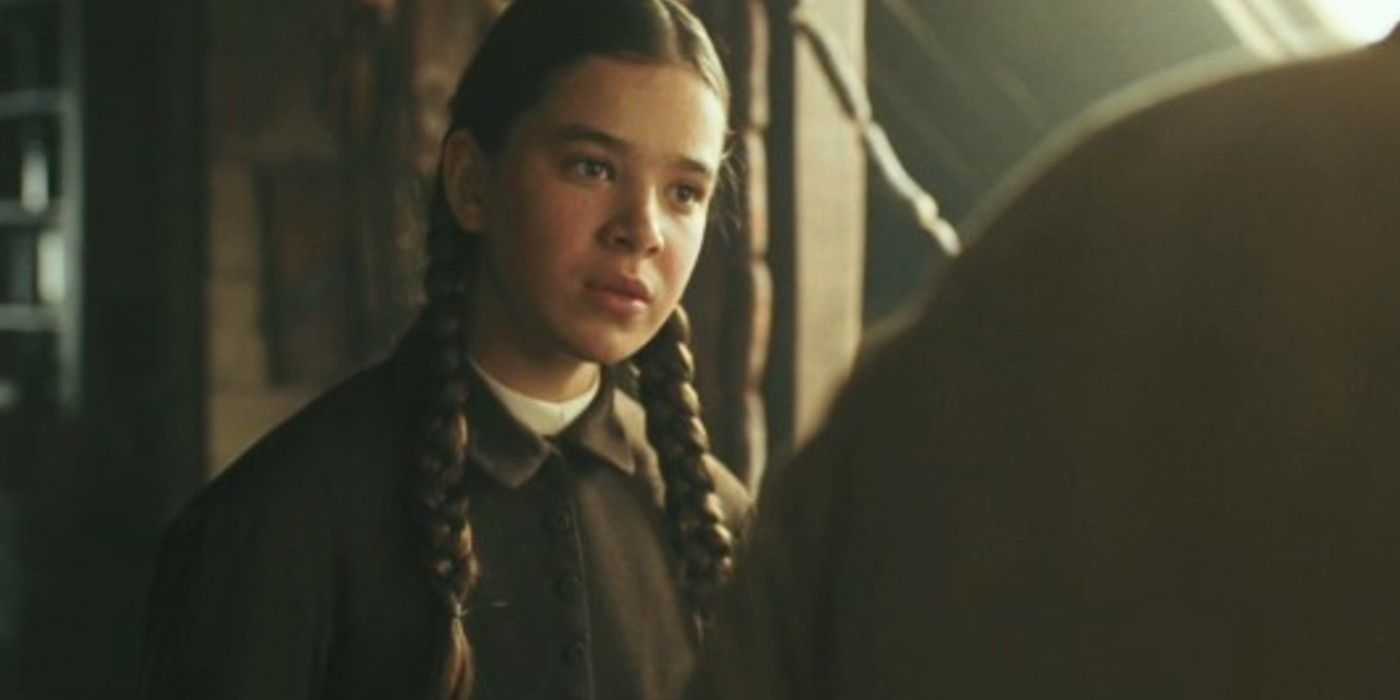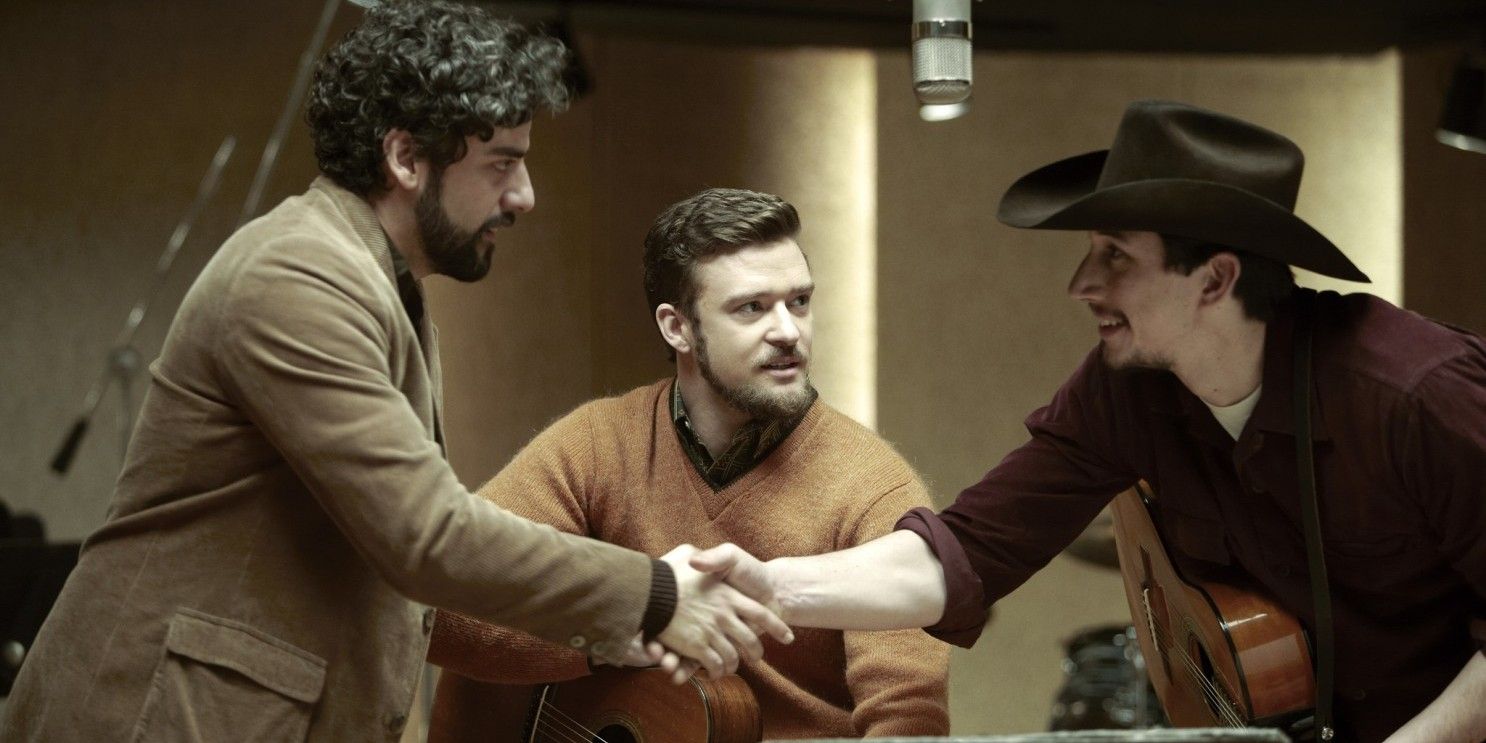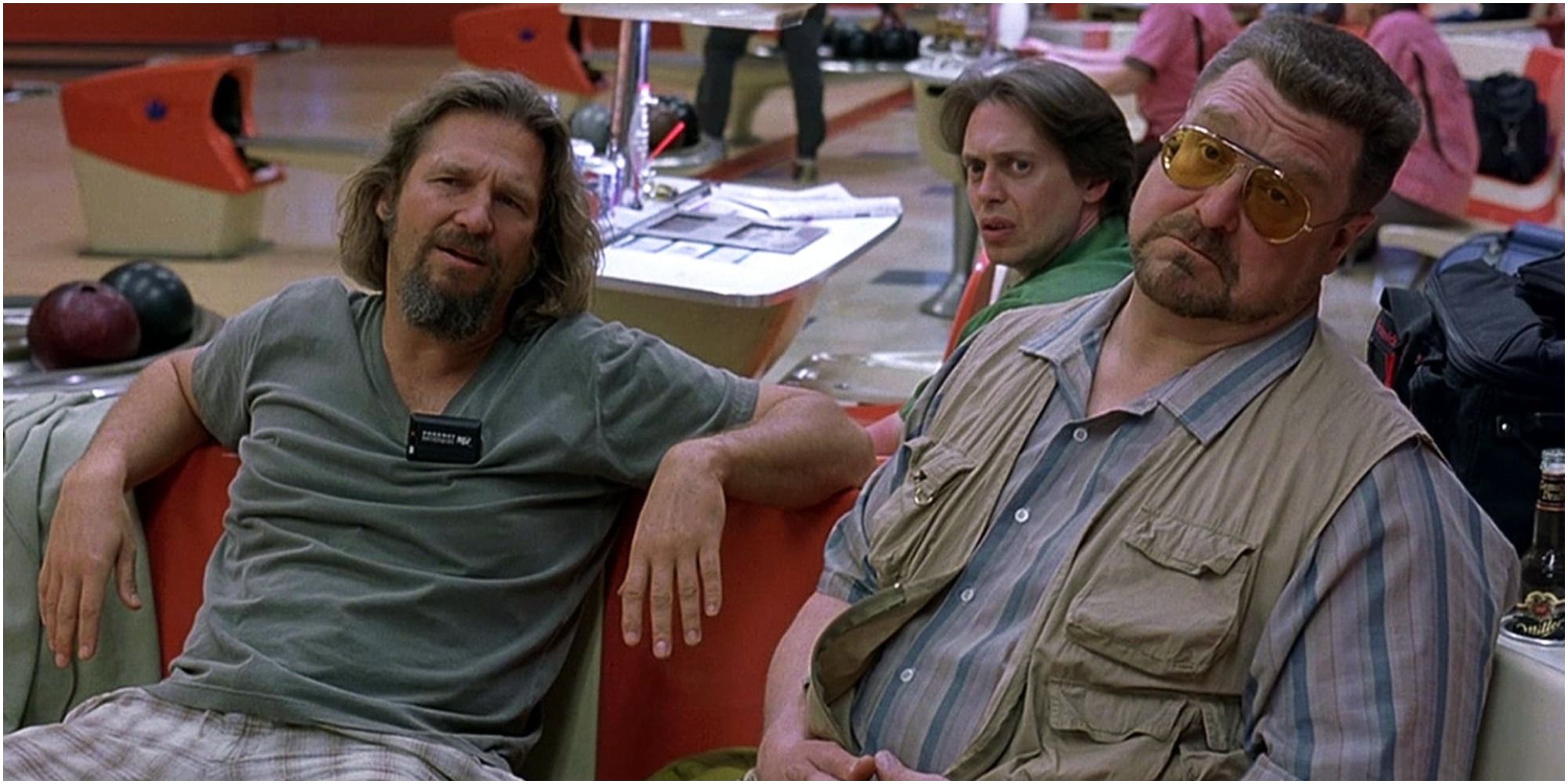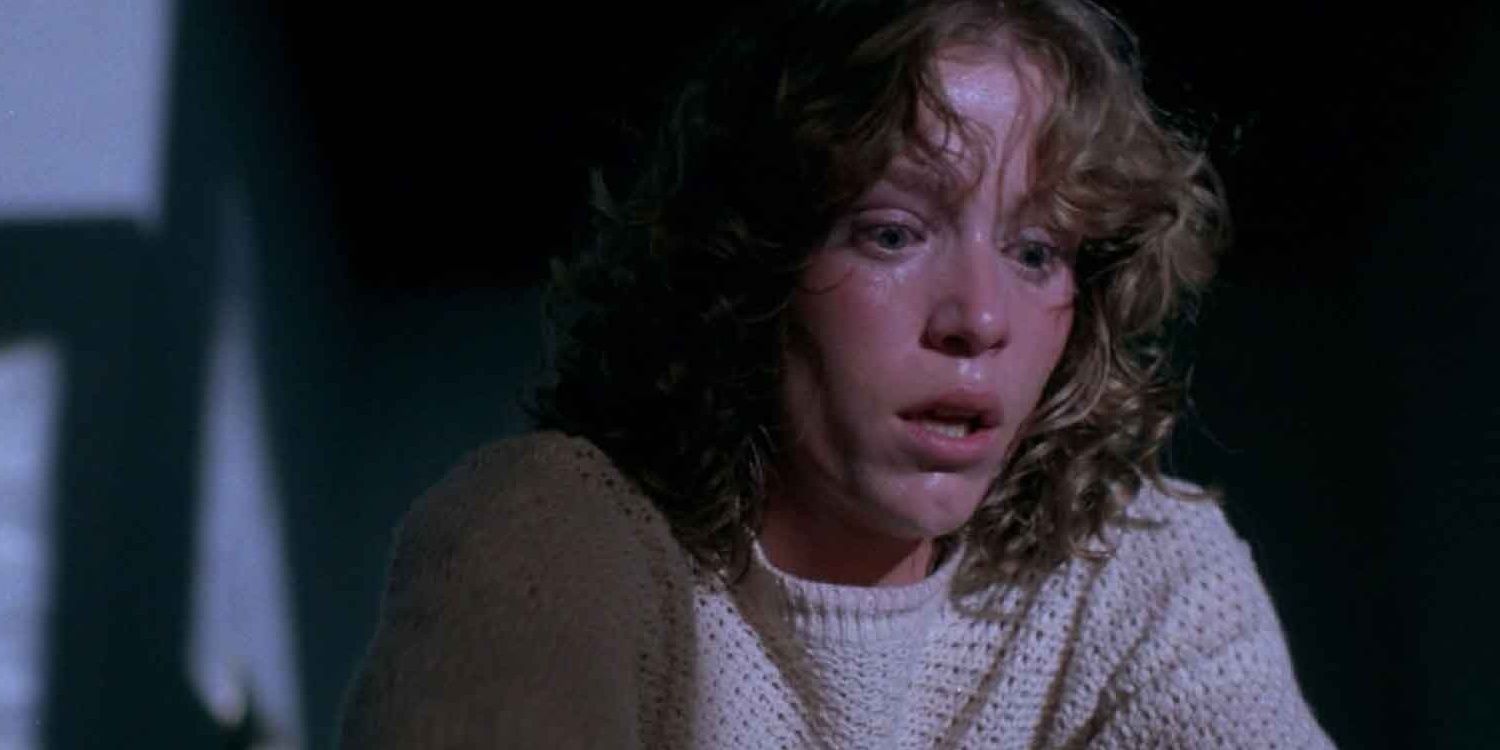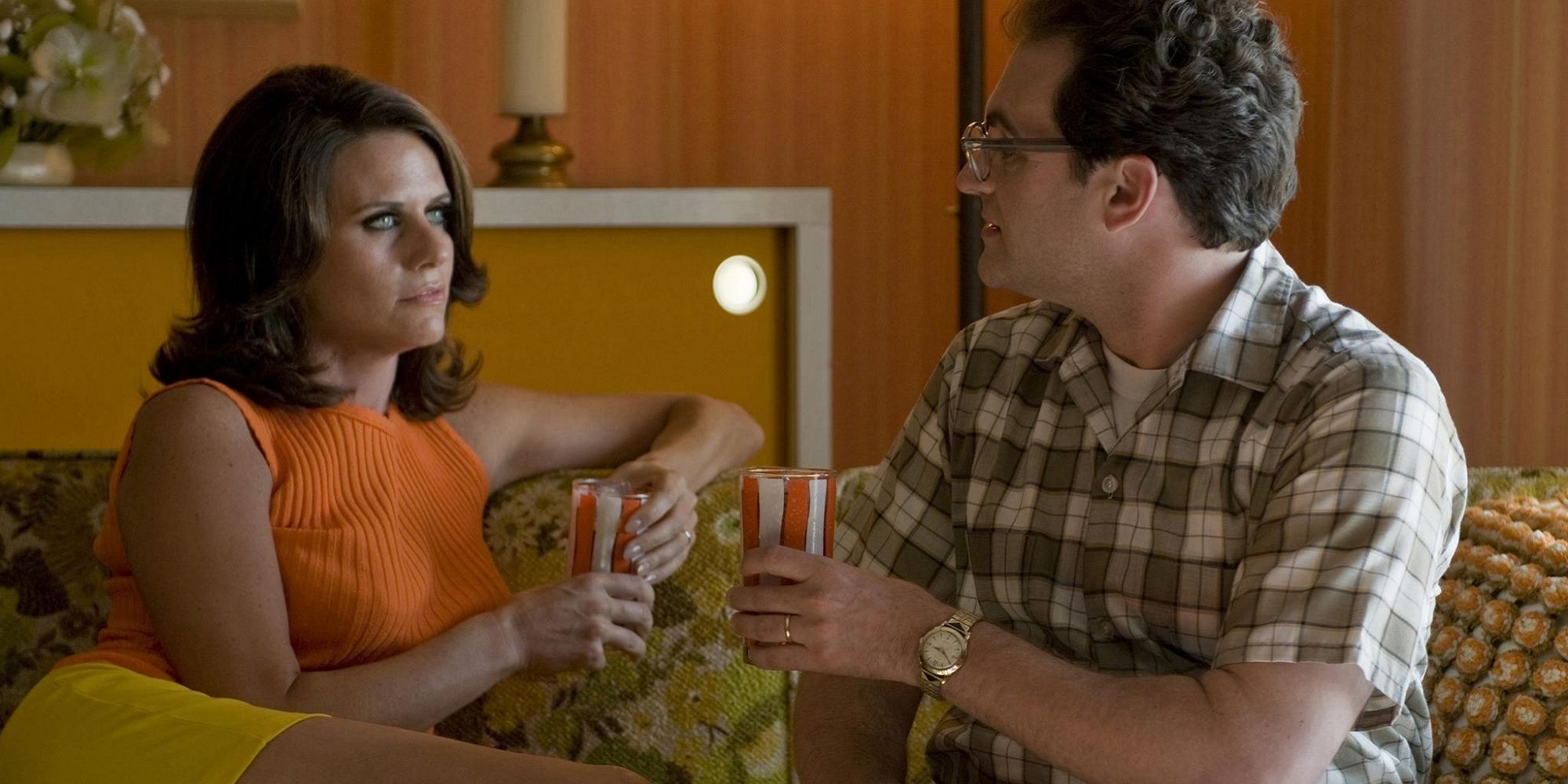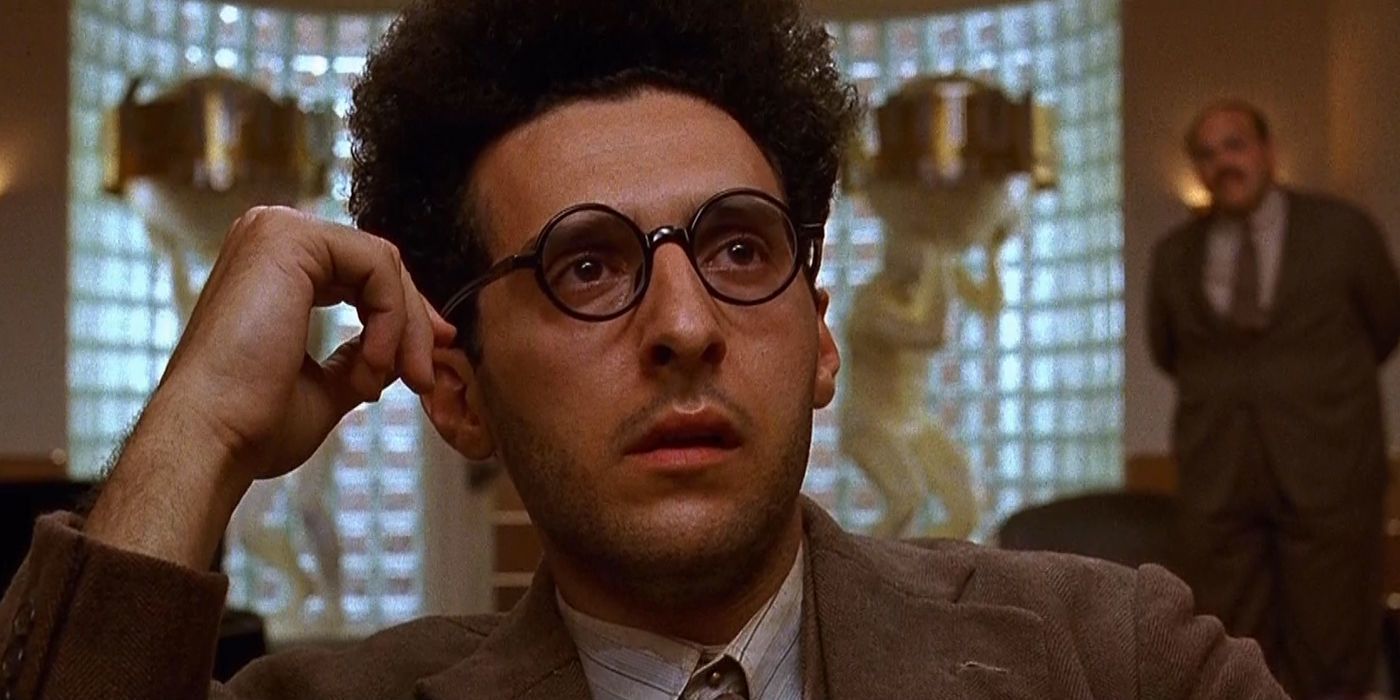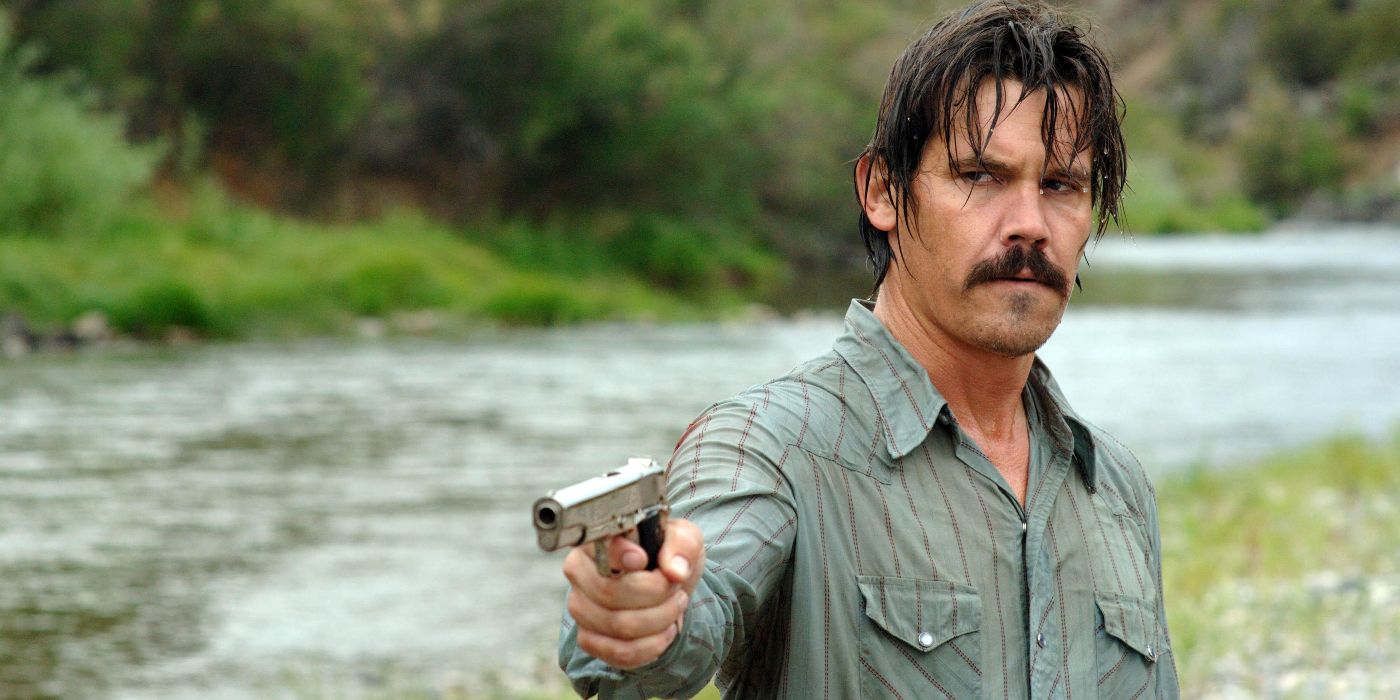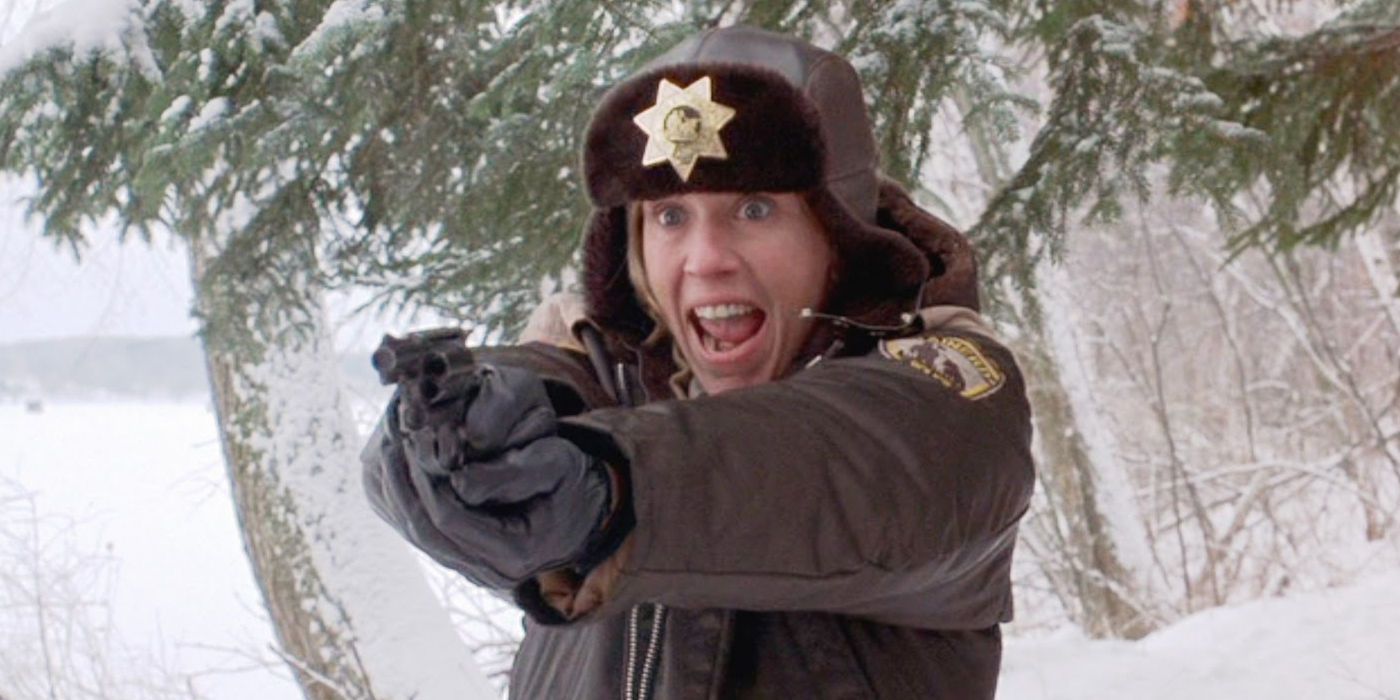For close to four decades, the Coen brothers have been one of the leading voices in American cinema, but how do their movies rank? The writer-director-editor team is the brains behind a slew of critically acclaimed and often commercially successful movies that span genres, themes, and styles, all while fitting comfortably under the umbrella of what has come to be known as the Coenesque. Whether it's comedy, thriller, drama, or noir, you know a Coen brothers movie when you see it.
It's tough to pin down what exactly makes a Coen brothers movie so special. While there's a lot of connective tissue between their films - a love for total dopes as heroes, deep irony, existential dread, a blend of jokes and violence - their movies are often as unique as they are familiar. It's a strange cycle of contradictions that defines few other film-makers, and far less on the level of recognition and acclaim as the Coens. What makes them so notable is their consistency, their prolific output, and their continuing evolution as storytellers, even after nearly 40 years in the industry. Often working alongside familiar collaborators – cinematographers Roger Deakins and Bruno Delbonnel, composer Carter Burwell, actors John Turturro, Frances McDormand (who is married to Joel Coen), John Goodman, George Clooney, and many more – the Coens continue to challenge and surprise even their most cynical viewers.
Coming up next, the Coens are splitting up for one movie, as Joel directs an adaptation of Shakespeare’s Macbeth with McDormand and Denzel Washington in the leading roles. That production is currently on pause due to the COVID-19 pandemic but is sure to be on the top of many a film lover’s most anticipated releases. The brothers are also working on the script for the latest remake of Scarface, which will be directed by Suspiria’s Luca Guadagnino. While waiting for these, here's a look at the feature films of Joel and Ethan Coen, ranked from worst to best.
18. The Ladykillers
Arguably the only film in their back-catalog that feels like a total misfire, the Coens’ decision to remake The Ladykillers was always going to be a controversial one. The original Ealing comedy from 1955, starring Alec Guinness and Peter Sellers, is an all-time classic, a slow-burn and deeply morbid tale of bad men outwitted by the last person they would ever expect to take them on. On paper, it seems like perfect material for the Coens, but their adaptation is much louder and blunter in its approach. There are funny moments here and there, and Tom Hanks is clearly relishing the opportunity to play such a sleazy individual, but the final product feels labored in a way that doesn’t suit the material or the directors. For the first time, the Coens seem unsure of their own work.
17. Intolerable Cruelty
Given their popularity with critics and audiences alike, it's worth remembering that the Coens aren't exactly mainstream film-makers. They don't bend their style or intent to suit Hollywood's tastes or the current industry trends. 2003's Intolerable Cruelty, however, feels as close as the brothers ever got to making an old-fashioned ready-for-primetime romantic comedy. It’s not a perfect fit for the Coens, who are more ironic and caustic than the conventional take on the genre typically allows. George Clooney and Catherine Zeta-Jones have great chemistry in the vein of Katharine Hepburn and Spencer Tracey (whose films are a clear influence here), but overall, the film is one of the few unmemorable efforts by the Coens.
16. Hail, Caesar!
A lot of 2016's Hail, Caesar! felt like an excuse for the Coens to live out their classic Hollywood fantasies while their famous friends joined in on the fun. That's not a knock on the movie itself, which is highly enjoyable, even as a lesser Coens effort. Josh Brolin plays Eddie Mannix, a real-life fixer for a Hollywood studio who is tasked with keeping the rich and famous in line: A dim-witted leading man has been kidnapped by a group of communist screenwriters; an Esther Williams-esque bathing beauty is dealing with a secret pregnancy; a guileless young cowboy actor struggles with being reinvented as a serious actor.
The best moments of the film come when the movie lets the Coens be Coens, especially in a hilarious scene where George Clooney, who plays the most wonderful doofuses in Coen movies, is increasingly won over by the tenets of communism. While the story is paper-thin, the movie beautifully homages golden age Hollywood tropes, from the Gene Kelly-style dance numbers (performed beautifully by Channing Tatum) to the warring gossip columnists paying tribute to Louella Parsons and Hedda Hopper both being played by Tilda Swinton. Alden Ehrenreich walks away with the movie as the singing cowboy forced to be a Cary Grant type.
15. Burn After Reading
There are few things the Coens love more than turning Hollywood’s most darling hunky leading men into utter idiots. It’s the default mode of George Clooney in their work and for Burn After Reading, they also roped in Brad Pitt and gave him one of the best and most hysterical roles of his career. This black comedy about hapless gym employees who come up against equally useless spies and CIA analysts blends the broad laughs of a frat-bro farce with the hardened paranoia of a 1970s political thriller. It mostly works but it's all dependent on how much patience you have for this cavalcade of numbskulls. Brad Pitt in full Looney Tunes mode, however, is a comedic delight, and the Coens' keen eye for detail is on top form.
14. The Ballad of Buster Scruggs
As with any and all movie anthologies, The Ballad of Buster Scruggs as a whole isn’t as strong as its best parts. Based on stories by Jack London and Stewart Edward White, as well as their own work, The Ballad of Buster Scruggs combines six disparate stories bound by the common theme of death and survival in the old West. Some stories fare better than others. "The Gal Who Got Rattled", for instance, is a stellar piece of work that fiercely captures the inherent contradictions of America's own myth-making surrounding its origins as a nation, and features a heart-breaking performance by Zoe Kazan. The inconsistencies in quality between the stories is to be expected for this medium, but the meticulous craft of each make them worth your while.
13. The Hudsucker Proxy
The Coens have never concealed their love of the works of Preston Sturges and 1940s screwball comedies, and 1994's The Hudsucker Proxy is their most lavish homage to those tales. The movie infamously flopped hard upon release, barely making back a tenth of its budget, and critics slammed it as a thematically empty pastiche. Fortunately, many changed their minds over the years and The Hudsucker Proxy has now won over a mighty fanbase. It's a mile-a-minute and delightfully overloaded screwball tale where everyone is talking as fast as they can and the art deco production design overwhelms the viewer as much as its story skewers the hollowness of big-business buzzwords. Paul Newman and Jennifer Jason Leigh feel right at home with this world and its dialogue. While it’s occasionally drowned out by its own ambition and scale, the laughs fly thick and fast.
12. The Man Who Wasn’t There
A love of film noir has defined the Coen brothers since their earliest days, and The Man Who Wasn't There sees them leaning hard into that passion for the first time since Blood Simple. Slowly paced and often abrasive, especially with Billy Bob Thornton playing the Bogart-esque protagonist with a deeply strange edge, the movie revels in its mixture of dense, near-philosophical themes and total emotional distance. Some viewers may find that off-putting but it works for this story of crimes, misdemeanors, and wrongful charges, while its stunning black-and-white cinematography coupled with an array of stellar performances (including a young Scarlett Johansson) make this film one worth re-watching or revisiting for the first time, as it remains one of the Coens’ most underseen titles.
11. O Brother, Where Art Thou?
It’s easy to forget just how big a deal O Brother, Where Art Thou? was upon release in 2000. The movie, a retelling of The Odyssey in the American South of the Great Depression, made a lot of money and inspired a brief mainstream revival of folk and bluegrass music, with the soundtrack even winning the Grammy Award for Album of the Year. Reimagining a Greek epic, one of the key foundations of millennia of storytelling, as a Preston Sturges movie is the stuff of genius that only the Coens could pull off with this level of effortless panache. The loopy quality of the movie conceals a quietly sinister center, best embodied by John Goodman's character, and the translation of Homer's tale into this format is a cunning reminder of the Coen brothers' ability to remold almost anything into their inimitable style. It helps that the soundtrack is, indeed, splendid.
10. Raising Arizona
Charm often comes naturally to the Coens, albeit with a sly twist, but Raising Arizona sees the pair working at their most buoyantly delightful. A screwball tale that doesn't downplay or dilute is strange darkness, the movie feels like the offspring of a Mel Blanc or Tex Avery cartoon from the 1940s, complete with slapstick chaos and a truly touching family story. Raising Arizona is Coens at their most excesses, as they fling everything at the screen on top of their own growing technical prowess. It helps that the film is truly hilarious, in large part thanks to the committed foolishness of Holly Hunter and the perpetually game Nicolas Cage.
9. Miller’s Crossing
At the time, Miller's Crossing was considered a disappointing step down for the Coens, following the financial success of Raising Arizona. The movie didn't make any money and some wrote it off as trying too hard to subvert the tropes of the gangster genre. All of that cynicism overlooks how skilfully the movie straddles the gap between the past and future of such stories, as well as its thematic and creative denseness. It would take multiple re-watches to fully peel back the seemingly endless layers of Miller’s Crossing, from its old-school Hollywood roots to the ways its deliberately self-conscious approach to storytelling exposes the ludicrous fictions of these characters’ predicaments. Few filmmakers put together ensembles as perfectly cast as the Coens and Miller’s Crossing has one of their best, with John Turturro offering what may be his greatest performance of his storied career so far. It’s the perfect balance of style, substance, and strangeness.
8. True Grit
When you read the novel True Grit, written in 1968 by Charles Portis, you can't help but wonder if it was somehow always intended to be a Coen brothers film. The source material is so eerily perfect for the pair, from the witty dialogue to the elegiac narrative to the characters who would not look out of place in any of their other movies. So, it's no wonder that the pair worked wonders with 2010's True Grit, creating a classic Western that wholly delighted even skeptics of the genre. Hailee Steinfeld's performance is a luminous highlight of their filmography, a plucky and determined heroine who makes grown men quake but is ultimately still a teenage girl lost in the wilderness. Is it a more conventional effort from the Coens? Sure, but when it’s this expertly done then who cares? It's also one of the rare examples of a remake that is far better than its original, although the film is such a sharply imagined adaptation of the novel that to even consider it a remake of the John Wayne movie does it a disservice.
7. Inside Llewyn Davis
The 86th Academy Awards was jam-packed full of incredible movies, to the point where many notable films and performances were overlooked in dramatic fashion. Perhaps the most egregious snub of the lot was the near-total shutout of Inside Llewyn Davis, The Coens' black comedy about the Village folk scene of the early 1960s. Perhaps their most melancholy film, the story agonizingly captures the struggle and frustration of artists trying to make it big and being dogged by disappointment at every turn. Tales of male neuroses are a big part of the Coenesque and Llewyn Davis, wonderfully played by Oscar Isaac, is one of their best. He seems ready for fame but sometimes (indeed, most of the time) it’s destined to fail, and the film’s cold shadows captured beautifully by cinematographer Bruno Delbonnel constantly hint at the upcoming arrival of one Bob Dylan. The songs, both originals and covers, are eerily evocative of both the era's real-life music and the fantasy that every music nerd has of that time.
6. The Big Lebowski
What happens when you mix the hard-bitten noirs of Raymond Chandler with a languid slacker tale and Dali-esque dream sequences? You get one of the great cult movies of the 1990s. The Big Lebowski infamously received mixed reviews upon release and was seen as a step down for the Coens after the Oscar-winning success of Fargo, but it’s now one of the true icons in their filmography and deservedly so. This absurdist take on modern America revels in its overly-complex plot of mistaken identity and kidnapping, all of which it proudly lets the audience know is ultimately inconsequential. The real meat of the story is in Jeff Bridges' performance and the incredible craftsmanship that went into developing the worlds of a man who would ultimately be too busy relaxing to even notice it. Even by the unique standards of the Coen Brothers, The Big Lebowski is truly one of a kind.
5. Blood Simple
In 1984, the Coens made their feature debut with Blood Simple, a Dashiel Hammett-style neo-noir crime thriller that took them a year to fund independently and united them with future long-time collaborators like Frances McDormand and Carter Burwell. The movie ended up being the perfect calling card for the brothers to announce to Hollywood their talent as well as their intentions. Plotting-wise, it's as tight as a drum, with nary a moment wasted. While the movie is often hilarious, the Coens stick more to the traditional tenets of noir, with echoes of Touch of Evil and The Maltese Falcon. The former is most evident in the scene-stealing performance of the legendary character actor M Emmet Walsh, who evokes images of Orson Welles's deceitful detective with his perpetually sweat-sheened forehead and the sleaze that practically emanates from every pore. Blood Simple also features one of the most truly terrifying moments in any Coen brothers movie.
4. A Serious Man
Following the big stars and box office prowess of Burn After Reading, 2009's A Serious Man felt like the Coens were taking a break to make a movie for themselves and nobody else. It's a black comedy set in the 1960s Minnesota suburbs of their own childhood, a retelling of the Book of Job using the music of Jefferson Airplane, and the most famous actor in it is Howard from The Big Bang Theory. A Serious Man could have been hopelessly self-indulgent but instead, it is an ingenious story of a normal man trying to maintain his dignity as the world cruelly turns against him for seemingly no reason. As his life becomes increasingly hostile and claustrophobic, the audience cannot help but laugh and understand that, no matter how anonymous it seems, it’s hard not to take the universe’s apathy towards you personally. It may be small in scale but A Serious Man has lofty aspirations. Some critics accused it of being misanthropic but that misunderstands its philosophical and personal aims. Sometimes, as the gripping closing shot reminds us, life just sucks.
3. Barton Fink
The Coen brothers utterly dominated the 1991 Cannes Film Festival with Barton Fink. The movie no only won the top prize, the Palme d'Or, but swept the major awards for Best Actor and Best Director, something that almost never happens and is actively discouraged by the festival. It was worth it, though, because Barton Fink is a multi-layered and deceptively tense tale that combines noir, horror, buddy comedy, and historical drama in a way that only the Coens could.
John Turturro plays the eponymous writer, a playwright with worthy dreams who moves to Hollywood like F. Scott Fitzgerald to write movie scripts. Struck down with writer's block, he finds himself distracted by his next-door neighbor, an insurance salesman with a dark secret, as well as the increasingly labyrinthine machinations of the golden age of the movies. The line between comedy and tragedy has never been thinner for the Coens than it is with Barton Fink, which veers wildly between Lynch-esque surrealism and a scathing portrayal of the psychological manipulation required to keep Hollywood in business. Only Joel and Ethan Coen could make a film that’s equal parts Sullivan’s Travels and Naked Lunch.
2. No Country for Old Men
The work of Cormac McCarthy is notoriously difficult to adapt, but the Coens made it seem almost pathetically easy with No Country For Old Men. An utterly disquieting Western that feels like the movie Sam Peckinpah never got to make, the drama is an unforgiving thriller that has the viewer on edge from the first scene and doesn’t let up for the ensuing two hours. The Coens still find ways to inject some bleak humor into their surroundings but they keep their most esoteric quirks at a distance and take what could have been an overblown or unintentionally silly story completely seriously. Even with the worst haircut committed to celluloid on his head, Javier Barden's Anton Chigurh is horrifying in his methods and mind-games. The stakes are real and the Coens take this familiar narrative of revenge and blood in the new West and make it into something borderline-apocalyptic.
1. Fargo
No film better signifies the power and prevailing uniqueness of the Coenesque as thoroughly as Fargo. Roger Ebert famously said that Fargo was "one of the best films" he'd ever seen as well as a reminder as to why he loved film in the first place. Close to 15 years later – as well as three seasons of a critically acclaimed spin-off FX series – and none of that initial magic has worn off. That mixture of grotesque and cheeriness gets to the heart of what the Coens do best. They revel in the inherent strangeness of humanity but are at their best when they remember the bright spots, as embodied by Marge Gunderson, the pregnant police chief who symbolizes the ideal American hero in a less-than-conventional exterior (Frances McDormand rightly won an Oscar for her warm and charming performance).
The jokes never undercut the shocking gore of the story, nor do the bursts of heart-stopping violence make the comedy seem glib or misused. It’s a balance put together so perfectly that you wonder why any other directors even bother trying to replicate it. It may not actually be based on a true story as the movie famously claimed but there's such life at the heart of Fargo that its universal truths ring just as loudly as its cultural and creative specificities.

